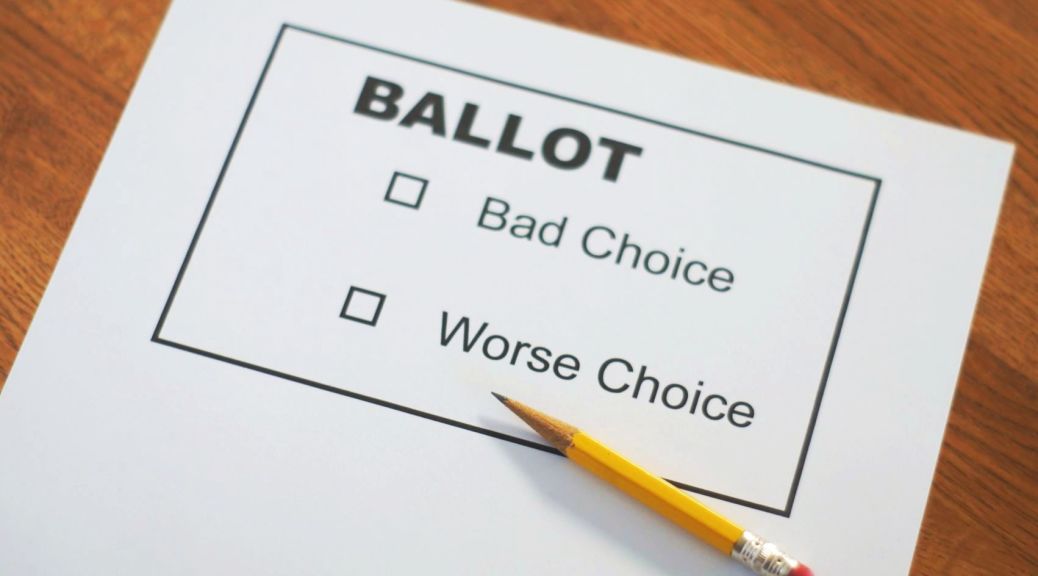
In this episode, Diana Thomas discusses the relationship between the Virginia School of Political Economy and the Austrian School of Economics. Diana is an Associate Professor of Economics at the Heider College of Business at Creighton University.
The Virginia School is a branch of public choice, the application of the tools and techniques of economics to the study of political actors. The Virginia School’s founders, James Buchanan and Gordon Tullock, were the first to systematically apply a rational choice framework to the study of politics in The Calculus of Consent.
Two assumptions commonly made by neoclassical economists are the “benevolence assumption” and the “omniscience assumption.” The benevolence assumption is implicit in normative analysis of what governments “ought” to do, as this assumes that political actors are motivated to maximize the common good rather than pursuing their self-interest. This assumption is challenged by public choice economists. The omniscience assumption is at play in economic models that depict the economy as being in equilibrium, whereby nobody is misinformed of or surprised by economic reality. This assumption is challenged by Austrian economists.
The omniscience assumption implies that the economy should be possible to rationally plan, an idea that Mises and Hayek debunked in the socialist calculation debate of the 1920s and 30s.
As Diana states in her paper, Entrepreneurship: Catallactic and Constitutional Perspectives, “both Buchanan and Tullock reference Mises’ Human Action as the central reference for their understanding of methodological individualism.” The Virginia and Austrian schools also share common understandings of rationality and of self-interest.
Diana draws a parallel between Israel Kirzner’s distinction between calculative and entrepreneurial action and Buchanan’s distinction between reactive and creative action. While calculative or reactive action consists in simply responding to known incentives and constraints, entrepreneurial or creative action consists in envisioning a future that is different from the present and in acting on that expectation. Kirzner applies the concept of entrepreneurship to businessmen seizing anticipated arbitrage opportunities in the market. Buchanan applies the concept of creative action to political actors attempting to reform constitutional rules.
Buchanan conceives of constitutional rules as being made behind a “veil of uncertainty” since it is beyond political actors’ ability to predict in precisely what situations the rule will be applied, and whether their own self-interest will be served or hurt in those situations.
Diana believes that political action is more entrepreneurial than most economists recognize. But while market entrepreneurship is guided by profit and loss towards those processes that best serve consumers, political entrepreneurship has no such guiding principle. Political entrepreneurs may innovate in ways that actually harm their constituents, but these innovations may nonetheless thrive and endure.
Poll numbers and bad press can motivate political actors, but these signals may not conform to the actual impacts of the policy. Good policies are often derided as evil, while bad policies are often popular. A US President can boost his popularity by declaring war, but US military ventures have a terrible track record in terms of their ultimate consequences (see Chris Coyne’s After War). Market innovations such as Lyft and Uber clearly benefit consumers, and yet there has been a political backlash against these popular businesses.
Public choice economists recognize that voters are “rationally ignorant,” since becoming informed about issues is costly, while the benefit is only manifested in better policy if the specific voter happens to be the swing vote in an otherwise tied election. Given these incentives, it would be irrational to be informed about policy, so it’s surprising that so many people vote at all. Diana explains it in terms of “expressive voting.” Voters vote because they want to express their views, not because their vote is particularly potent in shaping political outcomes.
Diana argues that policies aren’t particularly strongly affected by who is elected to office, rather they stem from institutional incentives. The median voter theorem demonstrates how, under plausible conditions, politicians attempt to please the most people by converging to a centrist policy. Another theory says that policy is not directed primarily by elections but by the lobbying efforts of special interest groups (see Olson). Since these groups get concentrated benefits from preferential policies, they have a strong incentive to agitate for them. Those who pay the costs of these policies (usually consumers) have only a small incentive to agitate against them, as the costs are dispersed among a great number of individuals.
Specific examples of policies made for the benefit of concentrated special interests are the US sugar quota, and Canadian customs duties charged for the importation of dairy products (leading to absurd cases of cheese smuggling).
You can read more from Diana Thomas at her professional website.
Subscribe to Economics Detective Radio on iTunes or Stitcher.
The post Virginia Political Economy and Entrepreneurship with Diana Thomas appeared first on The Economics Detective.

